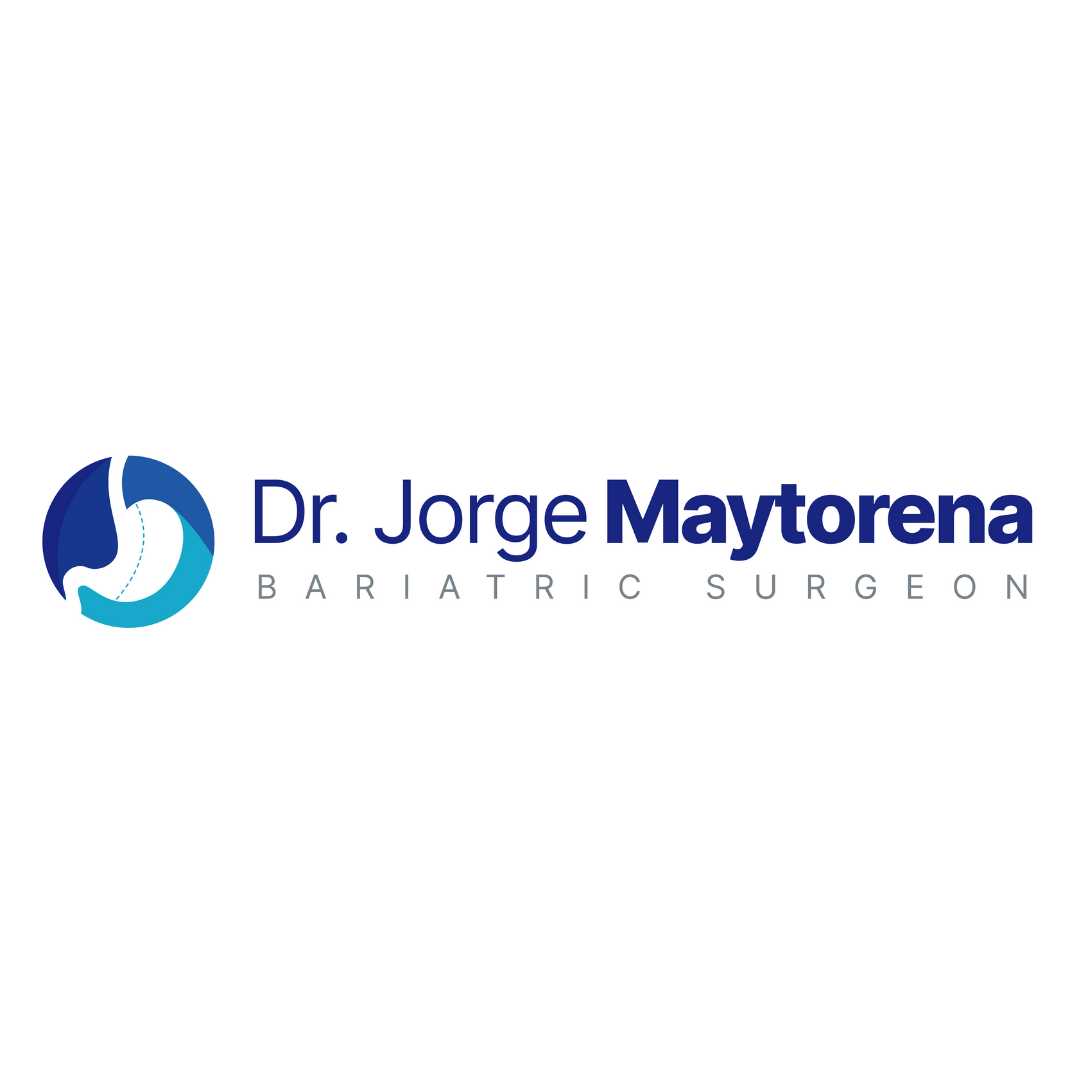Explore the Average Bariatric Surgery cost without Insurance

The cost of bariatric surgery without insurance can be a significant consideration for individuals seeking weight loss solutions. Generally, you can expect this to range from $10,000 to $35,000 or even higher in the United States. This wide range reflects various factors, including the specific type of procedure, the surgeon's experience, the location of the facility, and what's included in the surgical package. Understanding these variables is key to planning your weight loss surgery journey.
Going on the path to a healthier life through bariatric surgery is a major decision, and financial planning is an essential part of this process, especially if you don't have insurance coverage. This blog post aims to break down the costs involved, explore different types of weight loss surgery, and answer your most pressing questions to help you make informed choices. We'll delve into what influences the price, potential hidden fees, and options for making this life-changing procedure more accessible.
What is the average cost of bariatric surgery without insurance?
"The average cost of bariatric surgery without insurance in the U.S. typically falls between $15,000 and $25,000, although this can vary significantly."
This average encompasses various procedures like gastric sleeve, gastric bypass, and lap-band. It's crucial to remember that this is a general estimate. The final price you pay will depend on a multitude of factors that we will explore in more detail. Some facilities may offer package pricing, which can provide a clearer upfront cost, but always ensure you understand exactly what is included.
Think of it like buying a car; the base model has a certain price, but adding features, choosing a different engine, or opting for a luxury brand will all impact the final cost. Similarly, bariatric surgery costs are not one-size-fits-all. Researching specific clinics and surgeons will give you a more accurate picture for your individual circumstances.
What are the main factors influencing the cost of bariatric surgery?
"Several key factors influence the cost of bariatric surgery, including the type of procedure, the surgeon's expertise and reputation, the geographic location of the hospital or clinic, and the complexity of your individual case."
Let's break these down:
- Type of Procedure: Different bariatric surgeries have different levels of complexity and require different resources, directly impacting the cost. For instance, a gastric bypass is generally more complex and thus more expensive than a lap-band procedure.
- Surgeon's Fees: Highly experienced and renowned surgeons may charge more for their services. Their expertise can contribute to better outcomes and potentially fewer complications, which is a significant consideration.
- Geographic Location: Costs for medical procedures often vary by region. Urban areas with a higher cost of living typically have higher surgical fees compared to rural areas or facilities in other countries known for medical tourism.
- Hospital or Clinic Fees: The facility where the surgery is performed (hospital vs. ambulatory surgical center) will have its own set of charges. Hospitals generally have higher facility fees.
- Anesthesia Fees: The cost of anesthesia and the anesthesiologist's services are also a component of the overall price.
- Pre-operative and Post-operative Care: The extent of care before and after surgery, including consultations, lab tests, nutritional counseling, and follow-up appointments, can affect the total cost if not bundled into a package.
How much does a gastric sleeve cost without insurance?
"Without insurance, a gastric sleeve surgery (sleeve gastrectomy) typically costs between $10,000 and $25,000."
Gastric sleeve surgery has become a popular option for weight loss. During this procedure, a large portion of the stomach is removed, leaving a smaller, banana-shaped "sleeve." This restricts food intake and reduces hunger-producing hormones. The price range accounts for the surgeon's fee, hospital or surgical center costs, anesthesia, and sometimes initial follow-up appointments.
It's important to inquire whether the quoted price is all-inclusive or if there will be separate bills for different aspects of the care. For example, pre-operative tests like endoscopies or cardiac evaluations, if required, might add to the overall expense.
What is the price range for gastric bypass surgery if I'm paying out-of-pocket?
"For patients without insurance, gastric bypass surgery (Roux-en-Y gastric bypass) generally ranges from $18,000 to $35,000."
Gastric bypass surgery is often considered the gold standard for weight loss surgery and is typically more expensive than gastric sleeve due to its complexity. This procedure involves creating a small stomach pouch and rerouting the small intestine to this pouch. This limits food intake and nutrient absorption.
The higher cost reflects the longer operating time, increased complexity, and potentially longer hospital stay compared to other bariatric procedures. As with other surgeries, ensure you get a detailed breakdown of what the quoted price includes.
What's the typical cost for a lap-band procedure without insurance?
"The cost of a lap-band (adjustable gastric band) procedure without insurance usually falls between $9,000 and $18,000."
The lap-band procedure involves placing an inflatable silicone band around the upper part of the stomach, creating a small pouch. This restricts the amount of food that can be consumed at one time. While it was once a very common procedure, its popularity has decreased somewhat in favor of gastric sleeve and bypass.
The cost can be lower than other bariatric surgeries, but it's important to factor in the potential long-term costs associated with band adjustments (fills or de-fills), which may or may not be included in the initial surgical package.
Are there less common but potentially more expensive bariatric surgeries?
"Yes, procedures like the biliopancreatic diversion with duodenal switch (BPD/DS) can be more expensive, potentially ranging from $20,000 to $30,000 or more without insurance, due to their higher complexity."
The BPD/DS is a less common but highly effective procedure for significant weight loss, especially for individuals with a very high BMI or specific metabolic conditions. It involves both a sleeve gastrectomy and a significant intestinal bypass, leading to greater malabsorption of calories and nutrients.
Its complexity means longer surgery times, specialized surgical expertise, and potentially a greater need for intensive post-operative monitoring, all contributing to a higher cost.
What is generally included in the quoted bariatric surgery price?
"A quoted bariatric surgery price typically includes the surgeon's fee, hospital or facility fees, and anesthesia costs. However, this can vary, so it's crucial to confirm."
Many bariatric centers offer package pricing, especially for self-pay patients. These packages might also include:
- Initial consultation
- Some pre-operative tests (though not always all)
- The surgical procedure itself
- Standard post-operative follow-up visits for a defined period (e.g., the first 90 days or year)
Always ask for a written, itemized list of what is covered. This transparency is vital to avoid unexpected expenses later.
What are some potential hidden costs or additional expenses I should be aware of?
"Potential hidden costs in bariatric surgery can include pre-operative consultations and tests not covered in the initial quote, post-operative medications, nutritional supplements, follow-up appointments beyond the initial package, and potential costs for managing complications or revisions if needed."
It's essential to budget for these possibilities:
- Pre-operative evaluations: This can include cardiac clearance, psychological evaluation, sleep studies, and extensive lab work. If not part of a package, these can add hundreds or even thousands of dollars.
- Nutritional Counseling: While initial consultations might be included, long-term dietary support and dietitian visits may be extra.
- Vitamins and Supplements: After bariatric surgery, lifelong vitamin and mineral supplementation is necessary to prevent deficiencies. These are an ongoing out-of-pocket expense.
- Medications: Pain medications post-surgery, and potentially long-term medications for related conditions.
- Follow-up Care Beyond Package: If your package covers follow-up for a limited time, subsequent visits will be an additional cost.
- Complications: While surgeons strive for complication-free procedures, they can occur and may require additional medical care or even further surgery, leading to extra costs.
- Revisional Surgery: If the initial surgery isn't as effective as hoped or if complications arise later (like band slippage for lap-band), a revision surgery might be necessary, which can be as expensive or even more so than the initial procedure.
- Body Contouring Surgery: After significant weight loss, some patients opt for plastic surgery to remove excess skin. This is rarely covered by insurance and is a separate, often substantial, expense.
How much does the initial bariatric surgery consultation cost without insurance?
"An initial bariatric surgery consultation without insurance can range from $100 to $500, or sometimes it may be offered free by the clinic."
Some bariatric practices offer free informational seminars or initial consultations to attract potential patients. However, a detailed, one-on-one consultation with the surgeon to assess your candidacy and discuss options will likely have a fee. This fee may sometimes be applied toward the cost of the surgery if you decide to proceed with that clinic.
Always clarify the consultation fee when booking your appointment. This initial meeting is crucial for understanding your options and getting a feel for the surgeon and their team.
Are pre-operative tests a significant extra cost?
"Yes, pre-operative tests for bariatric surgery can be a significant additional expense if not included in a surgical package, potentially costing several hundred to over a thousand dollars."
Before bariatric surgery, a thorough medical evaluation is necessary to ensure you are a suitable candidate and to minimize risks. Common pre-operative requirements include:
- Blood tests (complete blood count, metabolic panel, lipid profile, vitamin levels, etc.)
- Electrocardiogram (ECG or EKG)
- Chest X-ray
- Upper endoscopy (EGD) to examine the stomach and esophagus
- Psychological evaluation
- Nutritional assessment
- Sleep study (if sleep apnea is suspected)
If your chosen surgical package doesn't explicitly include these, you'll need to budget for them separately.
What about post-operative care costs?
"Post-operative care costs for bariatric surgery can include follow-up appointments, nutritional counseling, vitamins, and medications, some of which might extend beyond what's covered in an initial surgical package."
Long-term success after bariatric surgery heavily relies on consistent follow-up and adherence to lifestyle changes. While some initial post-op visits are usually part of the surgery cost, ongoing care is crucial:
- Regular check-ups: To monitor weight loss, nutritional status, and any potential complications.
- Nutritional support: Ongoing guidance from a dietitian is often recommended.
- Lifelong vitamin and mineral supplements: This is a non-negotiable, continuous expense.
- Support groups: Often free or low-cost, but important for psychological well-being.
- Potential for further diagnostic tests: If issues arise.
Clarify the duration and extent of post-operative care included in your surgical fee.
Can the choice of hospital or surgical center impact the cost significantly?
"Yes, the choice of a hospital versus an outpatient surgical center can significantly impact the overall cost of bariatric surgery, with hospitals generally being more expensive."
Hospitals often have higher overhead costs, which are reflected in their facility fees. However, they are also typically equipped to handle more complex cases or emergencies. Outpatient surgical centers can offer a more cost-effective option for suitable candidates undergoing less complex procedures, like some gastric sleeves or lap-bands.
Discuss with your surgeon whether your procedure can be safely performed in an outpatient setting if cost is a major concern. However, the primary consideration should always be safety and the level of care appropriate for your health status.
Does the surgeon's experience level affect the price?
"Indeed, a surgeon's experience and reputation can affect the price of bariatric surgery. More experienced, highly sought-after surgeons may charge higher fees."
While it might be tempting to opt for a less expensive, less experienced surgeon, remember that the surgeon's skill is a critical factor in the success and safety of your weight loss surgery. An experienced bariatric surgeon is more likely to have refined techniques, handle potential complications effectively, and achieve better long-term outcomes.
Consider the surgeon's board certification, fellowship training in bariatric surgery, volume of procedures performed, and patient reviews. While cost is important, it shouldn't be the sole determining factor when choosing your surgeon.
Are there financing options available for bariatric surgery without insurance?
"Yes, many financing options are available for bariatric surgery for patients without insurance, including medical credit cards, personal loans, and payment plans offered by surgical centers."
Paying for bariatric surgery out-of-pocket can be challenging, but several avenues can help:
- Medical Credit Cards: Companies like CareCredit offer financing specifically for healthcare expenses, often with promotional periods of low or no interest.
- Personal Loans: Banks, credit unions, or online lenders may offer personal loans that can be used for medical procedures.
- Secured Loans: Using assets like home equity as collateral can sometimes secure a loan with more favorable terms.
- Clinic Payment Plans: Some bariatric practices offer in-house payment plans, allowing you to pay the cost over time. Be sure to understand the terms, interest rates, and any associated fees.
- Crowdfunding: Platforms like GoFundMe can be used to raise funds from friends, family, and even strangers.
- Retirement Funds: In some cases, you might be able to take a loan or hardship withdrawal from your 401(k) or IRA, though this should be carefully considered due to potential tax implications and impact on retirement savings.
Is medical tourism a cheaper option for bariatric surgery?
"Medical tourism for bariatric surgery, often to countries like Mexico or Turkey, can be significantly cheaper, with prices sometimes ranging from $4,000 to $10,000. However, it comes with its own set of considerations and potential risks."
The appeal of lower costs is understandable. Many international facilities offer high-quality care with experienced surgeons. However, it's crucial to research thoroughly:
- Accreditation and Standards: Verify the credentials of the hospital and surgeon. Look for international accreditation.
- Communication: Ensure there are no language barriers with the medical team.
- Travel and Accommodation Costs: Factor these into the total price.
- Follow-up Care: Determine how post-operative care and management of potential complications will be handled once you return home. Your local doctors may not be willing or able to manage issues arising from surgery performed abroad.
- Legal Recourse: Understand your options if something goes wrong.
- Travel Risks: Consider the risks associated with traveling soon after a major surgery.
While it can be a viable option for some, weigh the potential savings against the potential risks and challenges.
Can negotiating the price of bariatric surgery be an option?
"While not always possible, some patients have success negotiating the price of bariatric surgery or aspects of the surgical package, especially when paying cash upfront."
It doesn't hurt to inquire if there's any flexibility in the pricing, particularly if you are comparing quotes from different providers. Some clinics may offer a discount for full upfront cash payment as it reduces their administrative costs and eliminates the risk of non-payment.
Focus on the total package value rather than just the base surgery price. You might be able to negotiate inclusions like extra follow-up visits or specific pre-operative tests.
Are there any "low-cost" bariatric surgery programs in the US?
"Some U.S. hospitals or academic institutions occasionally offer "low-cost" bariatric surgery programs or studies, but these are not widely available and often have specific eligibility criteria."
These programs might be part of research studies or initiatives to make weight loss surgery more accessible. They may involve fellows performing surgery under the supervision of experienced surgeons, or they might have stricter BMI and comorbidity requirements.
Searching university hospital websites or clinical trial databases could reveal such opportunities, but they are not a guaranteed or widespread option for most patients seeking affordable care.
Does the cost vary between different states or cities?
"Yes, the cost of bariatric surgery can vary significantly between different states and even cities within the U.S., often correlating with the local cost of living and healthcare market dynamics."
Metropolitan areas on the coasts, for example, tend to have higher surgical costs than smaller cities in the Midwest or South. If you are willing and able to travel domestically, you might find more affordable options in a different state.
However, remember to factor in travel and accommodation costs, as well as the inconvenience of being away from home for follow-up care, if you choose a facility far from where you live.
What questions should I ask a bariatric center about costs?
"When discussing costs with a bariatric center, ask for a detailed, itemized quote, what's specifically included and excluded, the cost of initial consultations, pre-op tests, anesthesia, surgeon and facility fees, follow-up care coverage, and policies on potential complications or revisions."
Here’s a checklist of crucial questions:
- What is the total cost of the specific bariatric procedure I am considering?
- Can I get an itemized breakdown of all charges (surgeon, facility, anesthesia, etc.)?
- Is the initial consultation fee separate, or is it applied to the surgery cost?
- Which pre-operative tests are included, and which will be billed separately? What are their estimated costs?
- How many post-operative follow-up visits are included, and over what period? What is the cost of visits beyond this?
- Is nutritional counseling (pre- and post-op) included? If so, how many sessions?
- What is the policy and potential cost if complications arise requiring further treatment or hospitalization?
- What is the cost of revisional surgery if needed in the future?
- Are there any package deals for self-pay patients?
- What are the payment plan or financing options offered by the clinic?
Being thorough in your financial inquiries will help prevent unwelcome surprises and allow you to plan effectively for your weight loss surgery journey.
Ready to explore your options for bariatric surgery and take the next step towards a healthier you? Explore PlacidWay for solutions related to medical tourism and healthcare services worldwide. They can help you find accredited clinics and experienced surgeons, potentially offering more affordable pathways to achieving your weight loss goals.




.png)




.png)
.png)
.png)







Share this listing